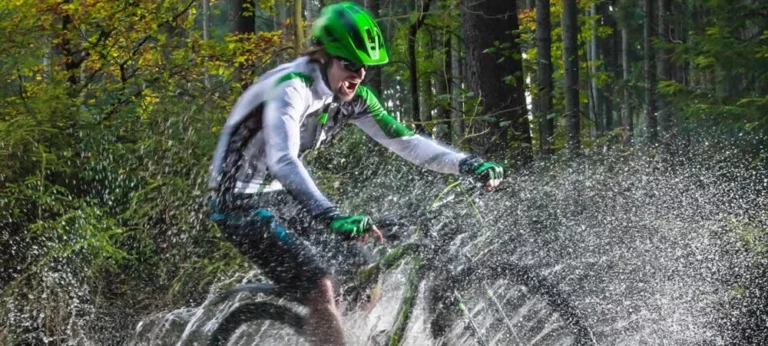Glentress 7 – 12 tips on how to be successful in endurance race events
- May 23, 2016

Tweedlove Glentress Seven
12 Tips For A Successful Tweedlove Race
by Phil Mack
Tweedlove hosts the Glentress Seven mountain bike event near Peebles. 7 hours of relentless riding on the Glentress trails as a solo, pair or groups of three or four.
I hope the following tips will help you to complete and enjoy this long but epic event:
1) Work out your race strategy
With the event being 7 hours long, it really is worth having a plan in place for your food, fluids and clothing. Don’t leave your planning to the last minute. Planning your food and energy can be tricky to get the balance between real food and supplements like sports drinks and gels. Hopefully you have a tried and tested strategy. If not, read the advice below and be careful with trying anything new on the day. If you are in a group of 2 or 3, make sure the rest of your team have prepared correctly, and have everything they need for the day. Forward these tips to the rest of your team.
2) Plan your nutrition
I believe, nutrition is absolutely key to successful ultra-events and starts in healthy daily nutrition and at least the day before by maintaining your carbohydrate intake through pasta and other carbohydrate-rich foods. On the day, another small carbohydrate meal roughly 90 minutes before the event, like porridge with raisins will help ensure you are starting the event with a full tank of energy. Nerves and excitement can suppress hunger so it is important you work around this and eat sufficiently before the event. Eating whilst riding can be difficult, especially when you are not hungry. If you are in a group this is not so difficult as you can eat when not riding, but for solo riders it’s a lot harder. You need to try and eat a little every 10-15 minutes to make sure you have a steady input of carbohydrates and thereby keeping your blood sugar at optimal levels. Select easy terrain like fire roads when you can grab some “easy to eat” food like fruit cake or energy bars.
3) Hydration
Similar to insufficient nutrition, dehydration will seriously affect your ability to ride. It takes as little as a 2% drop in body weight to significantly affect performance as well potentially cause the onset of cramp. Typically, riders can lose between 500-1000ml of fluid per hour – on a hot day even more. You may not replace all the lost fluid, but you should aim to consume between 500-750ml of fluids per hour (or for G7, per lap).
Next is what to put in your bottle. Years of scientific research has established a universally balanced formula for endurance sports drinks. Power mixes like High 5 Energy Source provides a maltodextrin and fructose mix in a ratio of 2:1, along with electrolytes. I recommend this type of drink as it takes out the guess work and provided you with a steady source of energy. It is always best to stick to the manufacturer’s instructions for the best results. Solo riders in particular, need to be taking small amounts of fluid ever 5 minutes or so to maintain hydration.
Begin hydrating the day before with roughly 3-4 litres spread throughout the day. This can be water or a weak solution of fruit juice or energy drink. This will mean you wake up on Saturday already hydrated and only need to maintain a steady intake rather than risk over-hydrating.
4) Supplements
There is a lot of debate about the use of gels, caffeine and other supplements.
Gels (with or without caffeine) provide you with a rapid burst of energy but will also cause a rapid drop in energy (sugar) after 30-50 minutes (insulin spikes), which means you will need another gel or other source of rapid energy. So if you are going to use gels, rather save them until later in the race. You need to have water to wash down the gel for better absorption. I know a couple of solo riders who will ride this event with only gels and water and with no food. This is not recommended. Unless you have tried and tested this and really experienced with this type of strategy. Be aware gels can also cause stomach cramps.
5) Pre-race warm up
G7 has a long hilly start so it is worth carrying out a short warm up in order to elevate your heart rate and prepare your muscles for the immediate ascent at the start of each lap.
If you are in a group, you will cool down and might get stiff before you are due to go out again. A few serious riders will have their turbo trainer with them to help them keep loose and warm but for most, a short ride (away from the transition area) will help prepare you for your next lap.
6) Set a good pace
Unless you are a racing whippet, don’t get drawn into the superfast pace at the start. Find a pace that you are comfortable with. Solo riders are well advised to aim for a negative split, in other words, faster in the second half of the event, rather than go too hard in the first few hours and then struggle to the finish.
7) Nothing new or untried
Using something for the first time at an event without trying it out in training is one of the most common mistakes made by sports people. So, in the case of this event, your bike, shoes, food and hydration strategy all fall into this category. Don’t be tempted and stick to what has worked for you in training.
8) Do a bike check
A full bike check, especially nuts and brakes is essential before a long race as thinks can come loose (like my front mech lever during the Selkirk Marathon). Check the weather forecast as this may influence your tyre choice.
9) Know the race course
Knowing the course is always useful so you know what to expect. It also helps your confidence if you are not an experienced mountain biker. Riding the course may not be possible but at least talk to other riders who know the course or search on YouTube for videos of the route from last year.
10) Dibber
Don’t forget to use your dibber key or card each lap. I forgot to dib on my first lap last year. Oops.
11) Clothing
Quite simply, prepare for all conditions.
12) Charge your Garmin or GPS unit
Another common school boy error but most of us have forgotten to charge our unit at some point. 7 hours is a long battery time for some units, so be fully charged.
Summary
- Full bike check, 1-2 days before the event (esp brakes and bolts/nuts)
- Start your hydration at least 24 hours before the event
- Pasta or other high carbohydrate meal the night before
- Carbo meal approx. 90 minutes before the event (eg porridge)
- Sip on energy drink up until the race
- Don’t use anything new for the race
- Eat a little every 10-15 mins
- Steadily drink throughout the event, sipping roughly every 5-10 minutes
- Select easy terrain to eat and drink
- Keep to your pace. Don’t start too fast
- Don’t forget to dib each lap
- Most importantly, enjoy the day and smile as you go through the transition.Good luck to everyone, and as usual, a huge thanks to all the organisers and volunteer marshals, without which we wouldn’t have this great event.

Phil has over 17 years of experience working with professional and international athletes and teams throughout UK, Australia and South Africa, including the South African Springboks, Leicester Tigers and Ulster Rugby as well as the South African Triathlon Team.
Phil Mack